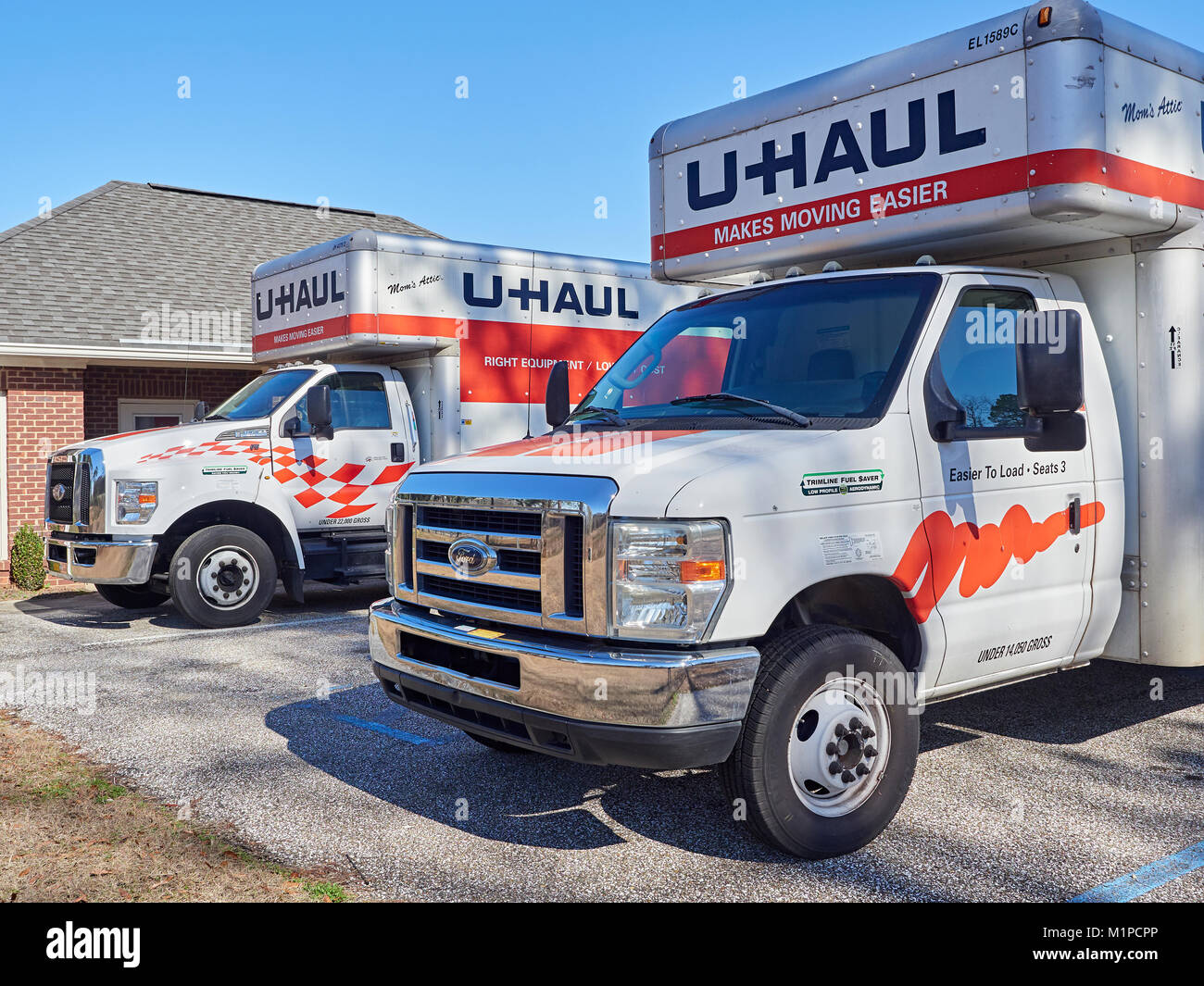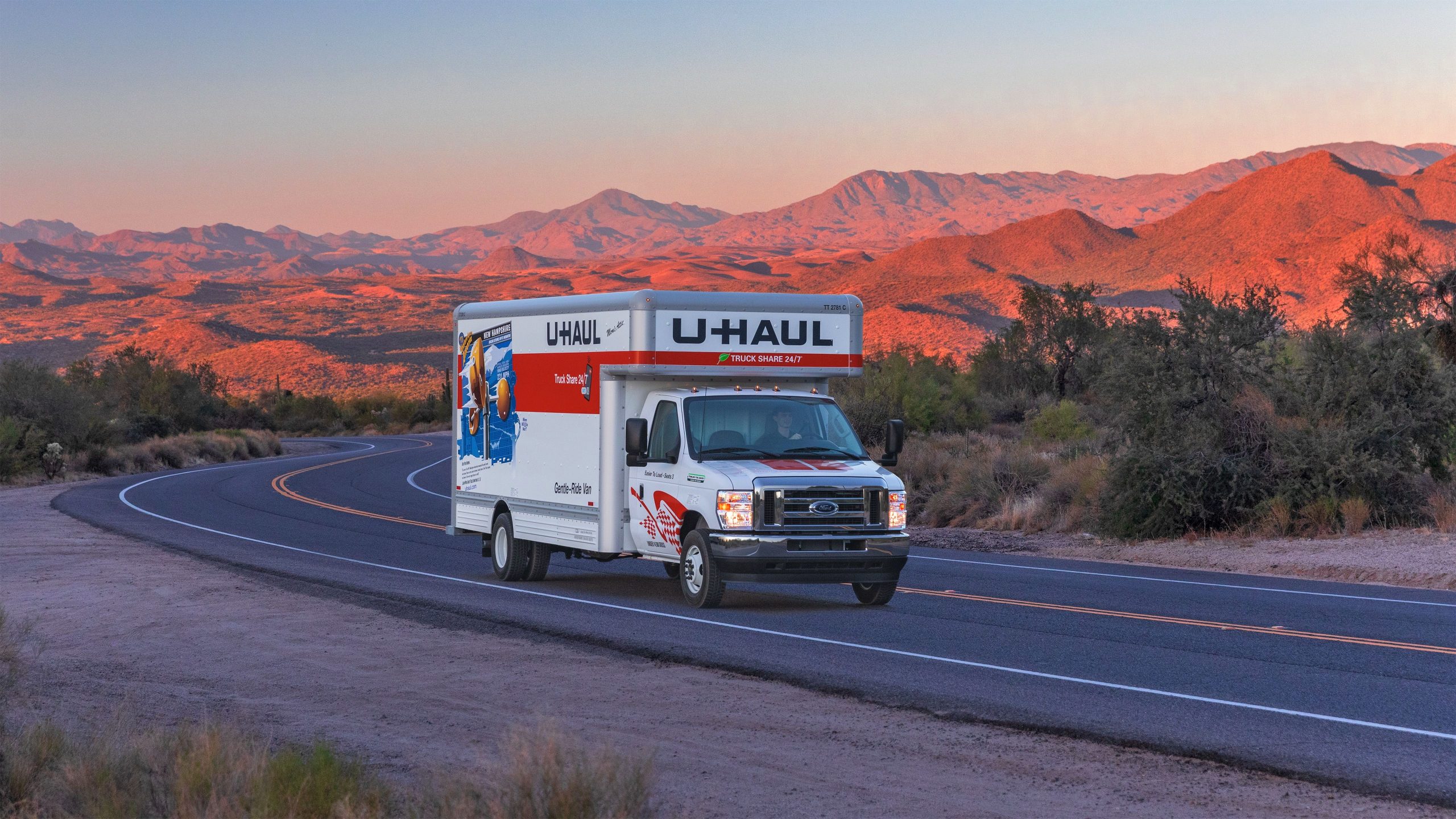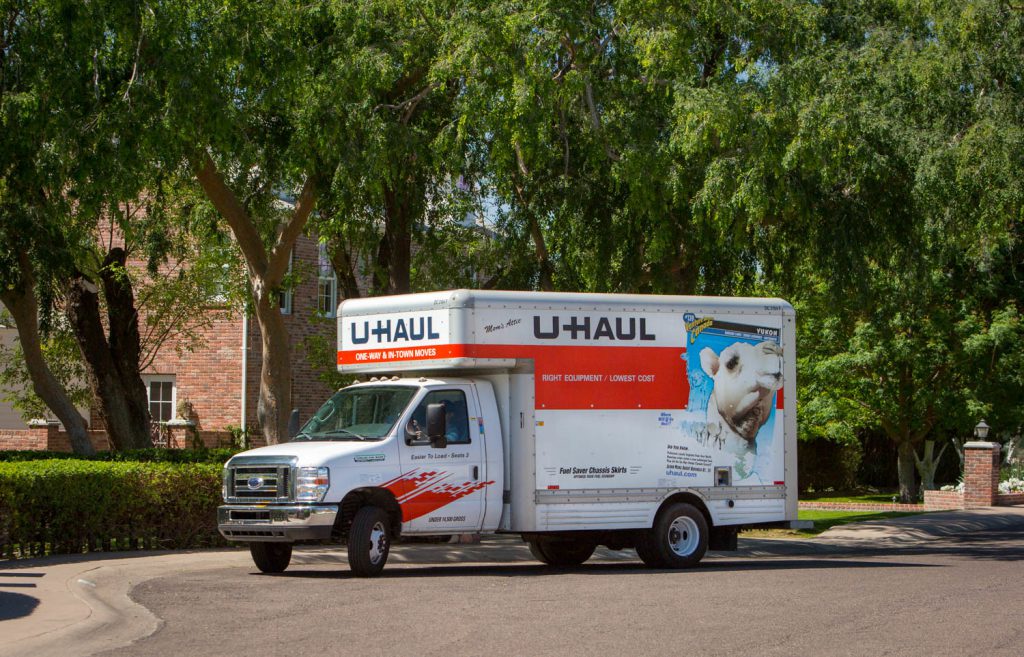U-Haul Trailer Rentals: Your Comprehensive Guide to Moving and Hauling types.truckstrend.com
Moving, decluttering, or embarking on a DIY project often comes with the challenge of transporting goods. While renting a truck is a common solution, it’s not always the most practical or economical choice. This is where U-Haul trailer rentals step in, offering a versatile and often more affordable alternative for a wide array of hauling needs. From small apartment moves to transporting a vehicle, U-Haul’s extensive fleet of trailers provides flexibility, convenience, and a reliable solution for individuals and businesses alike. This comprehensive guide will delve into everything you need to know about U-Haul trailer rentals, ensuring you’re well-equipped for your next hauling adventure.
Why Choose U-Haul Trailer Rentals?
U-Haul Trailer Rentals: Your Comprehensive Guide to Moving and Hauling
U-Haul has long been synonymous with DIY moving, and their trailer rental service is a cornerstone of this reputation. Opting for a trailer over a full moving truck offers several distinct advantages:
- Cost-Effectiveness: Trailers are generally less expensive to rent than trucks, both in terms of daily rates and fuel consumption, as you’re using your own vehicle.
- Flexibility: You can use your personal vehicle, eliminating the need to drive an unfamiliar, larger truck. This is particularly appealing for those uncomfortable with larger vehicles or navigating tight spaces.
- Variety of Options: U-Haul offers a wide range of trailer types and sizes, ensuring there’s a perfect match for almost any hauling requirement, from small boxes to large vehicles.
- One-Way and In-Town Rentals: Whether you’re moving across the country or just across town, U-Haul’s widespread network allows for convenient pick-up and drop-off locations.
- Ease of Use: While towing requires practice, U-Haul trailers are designed for user-friendliness, and their team provides guidance on proper hitching and loading.

Types of U-Haul Trailers: Finding Your Perfect Match
U-Haul categorizes its trailers into three primary types, each designed for specific purposes:
1. Cargo Trailers
These enclosed trailers protect your belongings from weather and theft, making them ideal for moving household goods, furniture, or sensitive equipment. They come in various sizes to accommodate different load capacities:
- 4’x8′ Cargo Trailer: The smallest enclosed option, perfect for small apartment moves, college dorms, or hauling a few pieces of furniture. It’s lightweight and easy to tow.
- 5’x8′ Cargo Trailer: A popular choice for one to two-bedroom apartment moves, offering more space while remaining manageable for most vehicles.
- 5’x10′ Cargo Trailer: Slightly larger, suitable for larger apartment moves or transporting more substantial items.
- 6’x12′ Cargo Trailer: The largest enclosed option, ideal for two to three-bedroom homes or significant hauling projects. It offers ample space and often features a ramp for easier loading.


Key Features: Weather protection, security, smooth interior walls to prevent damage.
2. Utility Trailers
Open-air trailers designed for hauling items that don’t require weather protection, such as landscaping materials, construction debris, ATVs, motorcycles, or large appliances. They typically feature low sides and a loading ramp.
- 4’x7′ Utility Trailer: Great for small jobs like hauling garden waste, a few pieces of lumber, or a small ATV.
- 5’x8′ Utility Trailer: A versatile option for general hauling, including furniture, building materials, or a motorcycle.
- 5’x9′ Utility Trailer with Ramp: The most popular utility trailer, featuring a sturdy ramp for easy loading of motorcycles, ATVs, lawnmowers, or heavy equipment.
- 6’x12′ Utility Trailer with Ramp: The largest utility option, perfect for hauling multiple motorcycles, large ATVs, construction equipment, or a significant amount of landscaping material.
Key Features: Open design for oversized items, easy loading with ramps (on most models), tie-downs for securing cargo.
3. Car Trailers (Auto Transport & Tow Dolly)
Specifically designed for transporting vehicles, these trailers are essential for long-distance moves, car shows, or retrieving non-running vehicles.
- Tow Dolly: A two-wheel trailer that lifts the front wheels of the towed vehicle off the ground. Ideal for front-wheel-drive vehicles. It’s lighter and generally more affordable than an auto transport.
- Auto Transport: A four-wheel trailer that carries the entire vehicle off the ground. Suitable for all types of vehicles (front-wheel, rear-wheel, all-wheel drive) and offers maximum protection during transit. It’s heavier and requires a more robust towing vehicle.
Key Features: Specialized ramps and tie-downs for vehicle security, integrated braking systems on auto transports.
How to Rent a U-Haul Trailer: A Step-by-Step Guide
Renting a U-Haul trailer is a straightforward process, whether you do it online or in person.
- Determine Your Needs: Before anything else, decide what you’re hauling and how much space you’ll need. This dictates the trailer type and size.
- Verify Your Towing Vehicle: Crucially, ensure your vehicle is capable of safely towing the chosen trailer. This involves checking your vehicle’s Gross Vehicle Weight Rating (GVWR), Gross Combined Weight Rating (GCWR), and maximum towing capacity (found in your owner’s manual). You’ll also need a properly installed hitch receiver, a hitch ball (usually 1-7/8" or 2"), and functional lighting connections (4-flat or 7-round wiring harness). U-Haul’s online reservation system will guide you through this, but it’s best to know your vehicle’s specs beforehand.
- Get a Quote and Reserve:
- Online: Visit U-Haul’s website, enter your desired pick-up and drop-off locations, dates, and select your trailer type. The system will provide an estimated quote. This is the recommended method for checking availability and securing your rental.
- Phone/In-Person: Call your local U-Haul dealer or visit a location to get a quote and make a reservation.
- Pick Up Your Trailer:
- Arrive at your scheduled pick-up location with your driver’s license, payment method, and the towing vehicle.
- A U-Haul representative will inspect your vehicle’s hitch and wiring, ensure it meets safety requirements, and help you properly hitch the trailer.
- They will also review safety instructions, including how to check lights, tires, and proper loading techniques.
- Load and Secure Your Items: Load your trailer carefully, distributing weight evenly to prevent swaying. Secure all items with ropes, tie-downs, or moving blankets.
- Drive Safely: Adjust your driving habits for towing. Maintain slower speeds, allow more braking distance, and take wider turns.
- Return Your Trailer: Return the trailer to the agreed-upon U-Haul location by the specified date and time. Ensure it’s clean and empty.
Important Considerations Before Renting
Towing Vehicle Requirements
This is paramount for safety. Your vehicle must have:
- Sufficient Towing Capacity: The combined weight of the trailer and its contents must not exceed your vehicle’s maximum towing capacity.
- Hitch System: A sturdy hitch receiver securely bolted to your vehicle’s frame, and a hitch ball of the correct size.
- Working Electrical Connection: A 4-flat or 7-round wiring harness to power the trailer’s brake lights, turn signals, and running lights.
- Trailer Brakes: For heavier trailers (especially auto transports), your vehicle might need an integrated trailer brake controller. U-Haul auto transports come with surge brakes, which apply based on deceleration, but larger rentals may require electric brakes.
Safety Tips for Towing
- Pre-Trip Inspection: Before every drive, check the hitch connection, safety chains, lights, tires (pressure and condition), and load security.
- Proper Loading: Load heavier items first, over the trailer’s axle or slightly forward of it, to ensure proper tongue weight (10-15% of the total trailer weight). Incorrect weight distribution is the leading cause of trailer sway.
- Adjust Driving Habits: Increase following distance, reduce speed (especially downhill and around curves), brake earlier and more gently, and make wider turns.
- Be Aware of Sway: If the trailer starts to sway, gradually release the accelerator and apply the trailer brakes (if you have a controller) to regain control. Do not brake hard with your vehicle’s brakes.
Insurance Options
While your personal auto insurance policy might cover liability for towing a rented trailer, it often doesn’t cover damage to the U-Haul trailer itself or its contents. U-Haul offers supplementary coverage options like:
- Safemove®: Covers damage to your goods, supplemental liability, and often a damage waiver for the truck/trailer.
- Safemove Plus®: Offers even broader coverage, including medical and life insurance benefits.
- Safetow®: Specifically for trailers, providing a damage waiver for the trailer itself.
It’s highly recommended to check with your personal insurance provider and consider U-Haul’s coverage for peace of mind.
One-Way vs. In-Town Rentals
- One-Way: Ideal for long-distance moves. You pick up the trailer at one U-Haul location and drop it off at another. Pricing is typically higher and depends on demand, availability, and distance.
- In-Town: For local moves or projects where you return the trailer to the same location you picked it up from. These are usually priced at a daily rate.
Tips for a Smooth Rental Experience
- Book in Advance: Especially during peak moving seasons (end of month, summer, holidays), reserve your trailer as early as possible.
- Be Flexible: If your dates are flexible, you might find better availability and rates.
- Understand Pricing: Rates can vary by location, demand, and season. Always get a detailed quote.
- Pack Smart: Use appropriate moving boxes, label them, and protect fragile items.
- Don’t Overload: Adhere to the trailer’s weight limits and your vehicle’s towing capacity.
- Check Clearance: Be mindful of the trailer’s height, especially with enclosed models, when entering garages, low bridges, or drive-thrus.
Potential Challenges and Solutions
- Availability Issues: During peak times, your desired trailer might not be available at your preferred location. Solution: Book early, be flexible with pick-up locations, or consider slightly different trailer sizes.
- Unexpected Fees: Make sure to clarify all potential charges, including mileage (if applicable for some equipment, though usually not for trailers), late return fees, and cleaning fees. Solution: Read your rental agreement carefully and return the trailer on time and clean.
- Breakdown/Roadside Assistance: While rare, issues can occur. Solution: U-Haul offers 24/7 roadside assistance. Keep their number handy.
- Hitching Difficulties: Some people struggle with hitching. Solution: Don’t hesitate to ask the U-Haul representative for help and a demonstration during pick-up. Practice in a safe, open area if you’re new to towing.
U-Haul Trailer Rentals: Example Pricing Table
It’s crucial to understand that U-Haul pricing is dynamic and varies significantly based on location, availability, demand, rental duration, and whether it’s an in-town or one-way rental. The prices below are estimated daily rates for in-town rentals and are provided for illustrative purposes only. One-way rental prices are much more variable and are typically quoted based on specific origin, destination, and dates.
| Trailer Type | Estimated In-Town Daily Rate (Example Range) | Common Uses | Notes |
|---|---|---|---|
| Cargo Trailers | |||
| 4’x8′ Cargo Trailer | $14.95 – $24.95 | Small moves, boxes, light furniture, dorm items | Lightweight, easy to tow. |
| 5’x8′ Cargo Trailer | $18.95 – $29.95 | 1-2 bedroom apartments, general household items | Most popular enclosed option. |
| 5’x10′ Cargo Trailer | $24.95 – $34.95 | Larger apartments, more furniture, appliances | Good mid-size option for significant hauling. |
| 6’x12′ Cargo Trailer | $29.95 – $39.95 | 2-3 bedroom homes, large appliances, construction | Largest enclosed, often with ramp. Requires capable tow vehicle. |
| Utility Trailers | |||
| 4’x7′ Utility Trailer | $14.95 – $22.95 | Yard work, small ATVs, construction debris | Open-top, great for odd-shaped items. |
| 5’x8′ Utility Trailer | $18.95 – $29.95 | General hauling, furniture, motorcycles, materials | Versatile open trailer. |
| 5’x9′ Utility w/ Ramp | $22.95 – $32.95 | Motorcycles, ATVs, lawn equipment, heavy items | Built-in ramp makes loading easier. |
| 6’x12′ Utility w/ Ramp | $29.95 – $39.95 | Multiple motorcycles, large equipment, building supplies | Largest open trailer, requires robust tow vehicle. |
| Car Trailers | |||
| Tow Dolly | $49.95 – $69.95 | Front-wheel drive vehicles, short to medium distance | Lifts front wheels. Lighter, more affordable. |
| Auto Transport | $59.95 – $79.95 | All vehicle types, long distance, non-running cars | Lifts all four wheels. Heavier, requires more robust tow vehicle, often includes surge brakes. |
Important Note on Pricing:
- One-Way Rentals: These are priced differently and often significantly higher than in-town rentals. The price is a flat fee determined by origin, destination, and availability, not a daily rate. Always get a specific quote for one-way rentals.
- Duration: Daily rates apply for in-town rentals. For longer periods, weekly or monthly rates may be available, sometimes at a discount.
- Taxes and Fees: Local taxes, environmental fees, and optional insurance will be added to the base rental price.
- Seasonal/Demand Fluctuations: Prices are higher during peak moving seasons (summer, end of month) and holidays.
Frequently Asked Questions (FAQ)
Q1: Do I need a special license to tow a U-Haul trailer?
A1: In most US states and Canadian provinces, a standard driver’s license is sufficient for towing U-Haul trailers, as their Gross Vehicle Weight Rating (GVWR) typically falls within the limits for non-commercial licenses. However, always check your local Department of Motor Vehicles (DMV) regulations.
Q2: What kind of hitch do I need?
A2: You need a hitch receiver securely attached to your vehicle’s frame, and a hitch ball of the correct size (usually 1-7/8" or 2" for U-Haul trailers). Your vehicle also needs a working electrical connection (4-flat or 7-round) for the trailer lights.
Q3: Can I rent a trailer one-way?
A3: Yes, U-Haul specializes in one-way rentals, allowing you to pick up a trailer at one location and drop it off at another. Be aware that one-way pricing differs significantly from in-town rates.
Q4: What if I break down or have an issue with the trailer?
A4: U-Haul offers 24/7 roadside assistance for their equipment. Keep the roadside assistance number provided during your rental readily available.
Q5: Are there mileage limits on U-Haul trailer rentals?
A5: No, U-Haul trailer rentals typically do not have mileage limits, unlike some truck rentals. You pay for the rental period, not the miles driven.
Q6: Do I need insurance for a U-Haul trailer?
A6: While your personal auto insurance might offer some liability coverage, it often doesn’t cover damage to the U-Haul trailer itself or its contents. U-Haul offers supplemental coverage options like Safetow® (for trailer damage) and Safemove® (for cargo and liability) that are highly recommended for peace of mind. Always check with your personal insurance provider first.
Q7: Can I pick up/drop off a trailer after hours?
A7: After-hours pick-up is generally not available for trailers due to safety checks and proper hitching requirements. After-hours drop-off might be possible at some locations, but you would remain responsible for the trailer until it’s officially checked in the next business day. Always confirm with your specific U-Haul location.
Q8: What’s the difference between a Tow Dolly and an Auto Transport?
A8: A Tow Dolly lifts only the front two wheels of the towed vehicle, making it suitable primarily for front-wheel-drive cars. An Auto Transport carries all four wheels of the towed vehicle off the ground, making it suitable for all vehicle types (FWD, RWD, AWD) and providing more protection during long hauls. Auto transports are heavier and require a more capable towing vehicle.
Conclusion
U-Haul trailer rentals offer an incredibly versatile, cost-effective, and practical solution for a myriad of hauling needs. Whether you’re moving your entire household, transporting a prized vehicle, or simply clearing out clutter, there’s a U-Haul trailer designed for the job. By understanding the different types of trailers, adhering to crucial safety guidelines, verifying your towing vehicle’s capabilities, and planning your rental diligently, you can ensure a smooth, efficient, and stress-free experience. Embrace the flexibility and convenience that U-Haul trailer rentals provide, making your next big move or project a manageable success.
